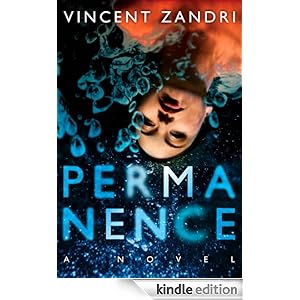The Bestselling Novel
I first came upon the name Allan Leverone about a year and a half ago. He had a new airport style thriller coming out called Final Vector which was being published by Medallion and he asked if I might read it and give him a blurb. I get quite a few requests to blurb books and I can't do them all, sadly. But Vector intrigued me because I travel and fly a lot, and when those massive highly combustible fuel-filled tin cans with engines attached start bottle-necking up on the runway in Philly or maybe Frankfurt, I often find myself gazing out the porthole window and asking the question, how is it these plane don't all collide and blow up even before getting into the air? The answer is Allan Leverone. He's not only an international bestseller with new books like The Lonely Mile and Paskaganekee, he's an air traffic controller. While we all want more books to be written by Allan, let's just hope he's not writing or editing on the job. Speaking of editing, here's Al's post. It's about editing sober or sober editing. This is more than just a simple play on words. Oh and here's Al's website if you'd like to check out more about his life and times and more importantly, his books:
http://www.allanleverone.com/
Editing sober
By Allan Leverone
“Write drunk; edit sober.”
Those words are often attributed
to Ernest Hemingway, and while there is some debate as to whether the man ever
actually uttered them, it’s easy to believe the quote is something he might
have said.
And if you’ve ever been drunk,
you know you would have to be Ernest
Hemingway to have a chance in hell of writing anything worth reading after
downing more than a drink or two. Most people have enough trouble carrying on a
conversation when drunk, never mind writing interesting prose.
Far be it from me to put words in
Papa’s mouth (or the mouth of whoever actually said it), because his point may
have been one hundred eighty degrees opposite mine, but in my opinion the quote
makes a lot of sense, not because of the first half of the statement but
because of the last.
“Edit sober.” Those two words
conjure up an image of a solitary individual, maybe sitting at a desk in the
middle of the night, ruthlessly marking up a manuscript in red pen, slashing
unnecessary descriptors, tightening dialogue, cutting scenes, working
tirelessly to make the manuscript as high-quality and readable as possible.
A good editor is like a good
umpire in baseball or a good referee in football: the game depends upon them,
but when the job is done well, they’re mostly invisible. They are critical, in
other words. You don’t notice them until they’re not there, or until they do a
lousy job.
The dawn of the ebook era, and
more specifically the self-publishing era, has clarified that point in a way
that nothing else could. It has become so easy for anyone with something to say
to get his or her work in front of the eyes of the public, that what was taken
for granted in the past as the only acceptable way to do business, has become an
optional step for many authors.
And that’s a shame, because
although I’ve only been writing fiction seriously for five-and-a-half years,
I’ve been reading it for nearly half
a century, and I’m here to tell you nothing turns me off quicker than a
poorly-written or poorly-edited book.
I learned the value of
professional editing when my first thriller, FINAL VECTOR, went through the
process at Medallion Press. I believed I had submitted a tight, exciting,
well-paced thriller, but after going through the editing process, the book came
out the other side vastly improved, far superior to the work I had submitted.
And as an added benefit, I learned a lot about the craft of writing and about
how to improve as a writer.
Lots of self-published authors
feel they don’t need professional editing, or that the costs of it outweigh the
benefits. As a reader I’m disappointed in that attitude, but as an author I’m
thankful for it.
You see, I’m considering dipping
my toe into the waters of self-publishing now, after working with Medallion
Press and StoneHouse Ink on my first three thrillers, and I intend to be around
for the long haul. While I understand and accept the fact that my work won’t
appeal to everyone, at the very least I know the average reader will not be
turned off to one of my books because of a poorly presented product. I’m
grateful to have the opportunity to get a leg up on all those authors who might
have an interesting concept, but whose execution suffers.
Readers are like gold to an
author. They’re hard to come by and critical to long-term success. Losing one
single reader thanks to poor editing is a loss I can ill-afford. Editing
matters.
I may not write drunk, but I’m thankful someone
edits
________________________________________________________________________________ MAKE YOUR PRE-ORDERS FOR THE THOMAS & MERCER EDITIONS OF INTERNATIONAL BESTSELLERS LIKE THE INNOCENT AND THE REMAINS AT WWW.VINCENTZANDRI.COM





